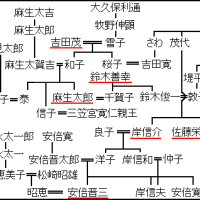On March 1, the Pentagon announced a $125 million military aid package for Ukraine, the first of its kind under the Biden administration. A Pentagon statement said that the package included “capabilities to enhance the lethality, command and control, and situational awareness of Ukraine’s forces through the provision of additional counter-artillery radars and tactical equipment; continued support for a satellite imagery and analysis capability; and equipment to support military medical treatment and combat evacuation procedures.” This aid is apart from US$150 million in fiscal year 2021 Ukraine Security Assistance Initiative funding appropriated by the US Congress. Ever since 2014, this has become a trademark method that Washington has been following to encourage Kiev to be belligerent towards Russia.
Biden’s entry in the White House was always meant to restore the global balance of power to the US’ advantage. Many companies and groups lobbying for Biden saw his presidency as “negative for Moscow”, likely to lead to a further deterioration of bilateral relations, both in terms of rhetoric and substance.
For the Ukrainian leadership, too, the arrival of Joe Biden has created an opportunity to reclaim Ukraine. As such, while current Ukrainian President Volodymyr Zelensky was previously ambiguous on his stance towards NATO during his election campaign in 2019—proclaiming his support for EU membership while saying little about the Western military alliance—he now regularly begs for his country’s full inclusion in NATO. At the same time, Zelensky administration has step-by-step ramped up anti-Russian hysteria by sanctioning pro-Russian opposition leaders and by shutting down media outlets too.
3月1日、国防総省は、1億2500万ドルのウクライナ軍事支援計画を発表したが、これはバイデン政権でのその種で最初のものだ。国防総省文書は、計画が「追加の対砲火レーダや、戦術装置の準備、衛星画像や分析能力、軍の医療や戦闘撤退手対する継続的な支援を通した、ウクライナ軍の致死性、指揮統制と状況認識能力強化を含むと述べている。」この支援はアメリカ議会によって割り当てられた2021年会計年度のウクライナ安全保障支援構想資金の1億5000万米ドルとは別だ。2014年以来、これはワシントンが、ロシアに対し闘争的になるようキエフを奨励するために行う典型的手法になっている。
多くのアメリカ人にとって、バイデンのホワイトハウス入りは、世界の勢力のバランスをアメリカ優位に回復させることを意味していた。バイデン当選に向けロビー活動をしていた多くの企業や団体は、彼の大統領就任は「モスクワにとっては不利で」あり、言葉の上でも、実質的にも、二国間関係の更なる悪化に導く可能性が高いと見ている。
ウクライナ指導部にとっても、ジョー・バイデンの到来はウクライナを取り戻す機会だ。そこで、ウクライナのヴォロディミル・ゼレンスキー現大統領は、2019年選挙運動の際、EU加盟支持を主張しながら、欧米軍事同盟については、ほとんど触れず、NATOに対する彼の姿勢は、これまで曖昧だったが、彼は今やウクライナの全面受け入れをNATOに嘆願している。同時に、ゼレンスキー政権は、親ロシア派野党リーダーを制裁し、放送局を閉鎖で、反ロシア・ヒステリーを漸進的に強化している。
--------------
The fact that Biden's entry into the White House is considered by at least one percent of the wealthiest Americans to be a renewed opportunity to profit from the war, one has to wonder what the previous administration was like.
バイデンのホワイトハウス入りが、アメリカの少なくとも1%の富裕層が、戦争によって利益を得る再機会だと考えているということは、前政権はどうだったのかと考える必要があるだろう。
How the US is Creating Trouble Around Russia
When the US president Joe Biden delivered his first major foreign policy speech in February, he signalled America’s return to an interventionist and confrontationist policy design, one that thrives on creating troubles for its competitors. Accordingly, whereas we see the US continues to blame the Chinese authorities for carrying out a “genocide” in Xinjiang – which is a major logistical base for China’s various Belt & Road Initiative (BRI) project – it has equally started creating trouble in Ukraine to force Russia into a crisis situation, hoping that such a situation would make Russia submit to the US ambitions to re-establish its lost unilateral global domination. The recent most sanctions imposed on Russia indicate the current trends in unmistakable terms. However, the way the US is soaking Ukraine up with anti-Russian policies speaks volumes about the way the US is creating conditions of a war and use the scenario to extend NATO’s outreach.
On March 1, the Pentagon announced a $125 million military aid package for Ukraine, the first of its kind under the Biden administration. A Pentagon statement said that the package included “capabilities to enhance the lethality, command and control, and situational awareness of Ukraine’s forces through the provision of additional counter-artillery radars and tactical equipment; continued support for a satellite imagery and analysis capability; and equipment to support military medical treatment and combat evacuation procedures.” This aid is apart from US$150 million in fiscal year 2021 Ukraine Security Assistance Initiative funding appropriated by the US Congress. Ever since 2014, this has become a trademark method that Washington has been following to encourage Kiev to be belligerent towards Russia.
In his April 13 call with Russia’s Vladimir Putin, Joe Biden affirmed the US’
“unwavering commitment to Ukraine’s sovereignty and territorial integrity. The President voiced our concerns over the sudden Russian military build-up in occupied Crimea and on Ukraine’s borders, and called on Russia to de-escalate tensions.”
On April 4, the Operational Command East with the Armed Forces of Ukraine (AFU) provocatively announced that it will hold joint military exercises known as “Exercise Cossack Mace” with NATO forces later this year. While this would not be the first time the Ukrainian forces would hold such military exercises, there is a marked difference this time around that reflects the current geo-political scenario.
As such, whereas usual Ukraine-NATO drills are announced with clarifying statements that they are purely “defensive” operations, the AFU’s recent statement differed in that it made clear that it would simulate an offensive attack against not only “separatist-controlled Donbass” but Russian forces as well.
When seen in combination with the way Ukraine is aiming to reclaim Crimea, the nature of this build up as a form of direct territorial assault becomes evident. In March 2021, Ukrainian Foreign Minister Dmytro Kuleba tweeted, “[The Ukrainian government] has approved the Strategy for Deoccupation & Reintegration of Crimea, a historic document needed since 2014. The signal is crystal clear: we don’t just call on the world to help us return Crimea, Ukraine makes own dedicated & systemic efforts.”
As such, whereas Russia, too, has started its own military build-up on the Ukrainian border, this build-up did not happen until Ukrainian government officially declared their intent to reclaim Crimea at all costs.
The reason why the US is building up trouble around Russia looking to force the latter in an unnecessary war is, as mentioned above, to recreate a unilateral world order.
Russian Foreign Ministry Spokeswoman Maria Zakharova was sharp and pinpoint when she said that,
“The United States is not ready to accept the objective reality of a multipolar world in which American hegemony is not possible. It is placing its bets on sanctions pressure and interference in our domestic affairs. This aggressive conduct will certainly meet with resolute resistance. There will inevitably be a response to the sanctions. Washington must realise that it will have to pay for the degradation of bilateral relations. Responsibility for what is happening fully rests with the United States.”
For many in the US, Biden’s entry in the White House was always meant to restore the global balance of power to the US’ advantage. Many companies and groups lobbying for Biden saw his presidency as “negative for Moscow”, likely to lead to a further deterioration of bilateral relations, both in terms of rhetoric and substance.
For the Ukrainian leadership, too, the arrival of Joe Biden has created an opportunity to reclaim Ukraine. As such, while current Ukrainian President Volodymyr Zelensky was previously ambiguous on his stance towards NATO during his election campaign in 2019—proclaiming his support for EU membership while saying little about the Western military alliance—he now regularly begs for his country’s full inclusion in NATO. At the same time, Zelensky administration has step-by-step ramped up anti-Russian hysteria by sanctioning pro-Russian opposition leaders and by shutting down media outlets too.
As such, in this context, Joe Biden’s call for “diplomacy” to de-escalate the situation is unlikely to lead to any meaningful positive development not only because the Joe Biden administration is following an explicit agenda to recreate US hegemony, but also because Russia remains strongly opposed to any US attempts to dictate Russia from a position of strength.
Salman Rafi Sheikh, research-analyst of International Relations and Pakistan’s foreign and domestic affairs, exclusively for the online magazine “New Eastern Outlook”.
https://journal-neo.org/2021/04/21/how-the-us-is-creating-trouble-around-russia/
























